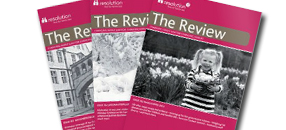The future is in the room – towards a thriving and rewarding collaborative community
Top tips on running collaborative cases and getting the best out of teams
 This 2018 DR conference workshop pointed to the benefits of working closely with collaborative colleagues and listening to their points of view. Run by Jo O’Sullivan of O’Sullivan Family Law, and headed “The Future is in the Room”, it examined ways to find out how to have the best collaborative pod.
This 2018 DR conference workshop pointed to the benefits of working closely with collaborative colleagues and listening to their points of view. Run by Jo O’Sullivan of O’Sullivan Family Law, and headed “The Future is in the Room”, it examined ways to find out how to have the best collaborative pod.
“We should seek to trust our collaborative friends rather than entering into a blame culture. We discussed the fact that whilst it is difficult to completely avoid conversations about what happened in the past, a successful collaborative four-way meeting needs proactive management and a positive joint approach.”
Just over 20 people were present at the workshop, which followed on from Jo’s triumphant debating success on the Thursday entitled “If dispute resolution is a four-course meal, why is collaborative practice not even on the menu?” This turned out to be her starter before the main course of her workshop. It started off with an admission from Jo that she was “too collaborative”. Her collaborative skills were tested to the limit by an audience which was lively but became diffident when Jo indicated that she intended to have some “role play situations”.
We were treated to several short videos by Brené Brown (who classes herself as a researcher/storyteller and Texan) including a very interesting one on the concept of empathy.
We were also entertained by watching a brief YouTube video called “It’s not about the nail”. The themes of these two videos led to the viewpoint that empathy fuels connection whereas sympathy drives disconnection, and empathy was about staying out of judgement.
The “It’s not about the nail” video (which, incidentally, should be viewed by anyone who needs cheering up) was a reflection of a need to listen and understand people before reaching a conclusion as to their thoughts and motives.
Once these hors d’oeuvres had been digested, we moved on to the main course. There was a general discussion about the obstacles faced being a collaborative lawyer. Even without the input of Jo’s evident enthusiasm there was a clear consensus in the room that being involved in collaborative cases was both fulfilling and rewarding, but not without its pitfalls. The following were examples given of issues that arise both in collaborative four-ways and within collaborative pods:
- We need to look after ourselves emotionally and recognise that some clients’ behaviour can induce you and your colleagues to mirror the same subconsciously, ie if your client is seeking to be positional the danger is that you will feel obliged to act in that manner, which will not assist matters.
- We should seek to trust our collaborative friends rather than entering into a blame culture. We discussed the fact that whilst it is difficult to completely avoid conversations about what happened in the past, a successful collaborative four-way meeting needs proactive management and a positive joint approach.
- Practitioners should consider the benefit of family consultants. Several of the audience spoke in glowing terms about the benefits of family consultants, both for our clients and ourselves.
- We need to listen to each other and we need to have a feeling that we are being heard. It was agreed that this was equally true of collaborative pods where sometimes difficult issues were avoided. One person said that collaborative lawyers in a pod can sometimes be seen as “a bunch of conflict avoiders” which is ironic considering the work that we are involved in.
- One interesting observation from the audience was that the person that you least like in your pod is the person you have the most to learn from.
- There was a discussion about where lawyers had encountered other lawyers in collaborative meetings being positional and where they had employed sharp practice such as obtaining a counsel’s advice in between collaborative sessions – we all agreed that detailed correspondence in relation to disclosure is not going to assist a successful collaborative meeting.
The audience almost avoided a role-play but not quite, but was saved from the second one by lunch (which was confusing as we were on our workshop dessert by this stage!).
Jo touched on several ways of improving your collaborative practice. In her local area for example, some local experts had devised their own separated parenting programme away from the formal one normally ordered by the court. She also indicated that speaking at/attending multidisciplinary talks was a useful way of building your profile and looking to expand your pod to become more multidisciplinary. She has even designed her own cartoon highlighting the differences between the traditional divorce and the collaborative divorce with a family consultant.
Jo highlighted that a successful collaborative practice gets the wisdom of the other lawyer, the help from a family consultant, guidance from a financial coach or IFA, and a pension provider where necessary.
The notes provided by Jo were excellent and gave us all food for thought. The programme notes stated that this upbeat, fun and interactive session will have you excited about working within your pod (or starting a new one if that is needed). The overwhelming conclusion of the audience after the workshop is that Jo succeeded in this and her energy and effort shone through to make this a very successful workshop.